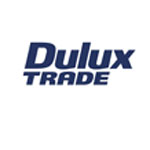
Top stories


ESG & Sustainability#BudgetSpeech2026: SRD grant unchanged, other Sassa social grants see hike
13 hours



More news












ESG & Sustainability
South Africa’s carbon tax should stay: climate scientists explain why










Taking its lead from AkzoNobel, which is currently ranked number one in the chemicals supersector of the Dow Jones Sustainability Index (DJSI), Dulux South Africa has a five-year strategy that covers five central pillars: Products and Services; People and Communities; Waste and Resources; Energy and Transport and Travel.
Within its geographic cluster, Dulux South Africa has been acknowledged for its approach to improving its sustainability achievements and performance. Dulux South Africa's sustainability journey is managed and monitored on a day-to-day basis by "sustainability champions" who oversee each of the five pillars, says Pradesh Naidu, company sustainability manager.
"We have definitely made big strides locally in terms of sustainability between 2010 and 2013 as part of a strategic plan that runs to 2015, after which it will be recalibrated," says Naidu, stressing that specific action plans and activities are attached to each of the core pillars.
Importantly, says Naidu, there is a direct correlation between the sustainability champions' full-time jobs and the respective areas they are responsible for in the five pillars. For example, the logistics manager has taken the Transport and Travel pillar under his wing while the site engineering manager at Dulux's Umbogintwini plant in Kwazulu-Natal has responsibility for the vital Energy pillar. General managers at Dulux's much smaller operations in Swaziland, Botswana, Malawi and Zambia are responsible for all five pillars within their business units.
Two of the most important factors that really make sustainability work at Dulux are the leadership from AkzoNobel - which even has executives whose complete concentration is on embedding and ensuring sustainability success - and a total "raw material to final product" focus in South Africa.
"I drive sustainability as a resource function. Each of the sustainability champions reports to me on their championing activities across the five pillars - it is a very measured process," explains Naidu, adding that AkzoNobel has a "very rigorous" sustainability auditing and monitoring process.
Also hugely significant in Dulux South Africa's sustainability success to date has been the matter of communications and staff awareness, acceptance and adoption. By taking a holistic approach to sustainability, the company has encouraged employees to adopt sustainable practices at home, as well as at work. A communications engagement survey conducted among employees delivered "encouraging results" about levels of awareness concerning the need for sustainability to be part of a responsible lifestyle, not just something confined to the workplace, a fad or a grudge practice.
Meanwhile, it is important to note that AkzoNobel's status in the chemical sector in the DJSI is not the result of a sudden or recent sustainability focus. Since 2006, coatings group AkzoNobel has not been placed lower than second in the chemicals sector of the DJSI, indicating how much focus it places on all aspects of sustainability throughout its international operations, including South Africa. AkzoNobel was joint first in the chemicals sector in 2007, but in 2012/13, holds first position on its own.
Leadership in sustainability is an important element of AkzoNobel's strategy. Companies that can effectively manage risks and seize opportunities related to sustainability trends exhibit a superior capability to prosper in the long term. Sustainability and shareholder value go hand-in-hand.
International television channel CNN's Marketplace Europe feature recently visited AkzoNobel's Sassenheim site in the Netherlands and spoke to the company's director of Technology and Open Innovation, Jos Keurentjes. Keurentjes talked about why the company is increasingly being inspired by nature in its quest to replace traditional raw materials that use energy-intensive production methods.
The three-minute report added that AkzoNobel spent more than €370 million (well over R4 billion) on Research Development and Innovation in 2012, with two-thirds of that total being directed towards sustainable solutions.
For more information, go to www.duluxtrade.co.za.